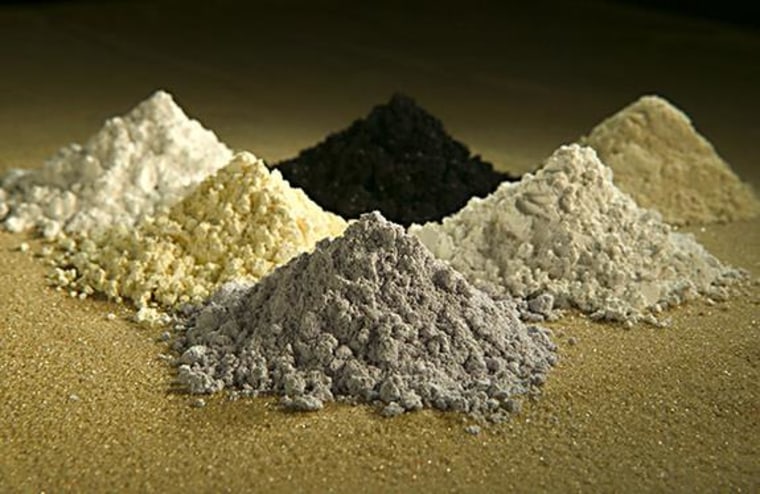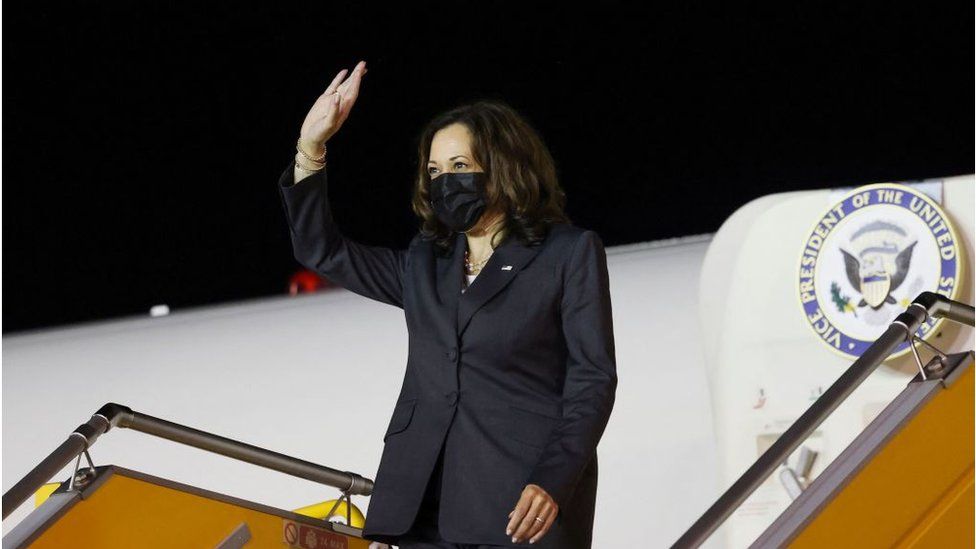Despite being one of the poorest nations in the world, Afghanistan may be sitting on one of the richest troves of minerals in the world, valued at nearly $1 trillion, scientists say.
Afghanistan, a country nearly the size of Texas, is loaded with minerals deposited by the violent collision of the Indian subcontinent with Asia. The U.S. Geological Survey began inspecting what mineral resources Afghanistan had after U.S.-led forces drove the Taliban from power in the country in 2004.
In 2006, U.S. researchers flew airborne missions to conduct magnetic, gravity and hyperspectral surveys over Afghanistan. [Infographic: Facts About Rare Earth Minerals]

The aerial surveys determined that Afghanistan may hold 60 million tons of copper, 2.2 billion tons of iron ore, 1.4 million tons of rare earth elements such as lanthanum, cerium and neodymium, and lodes of aluminum, gold, silver, zinc, mercury and lithium. For instance, the Khanneshin carbonatite deposit in Afghanistan's Helmand province is valued at $89 billion, full as it is with rare earth elements.
"Afghanistan is a country that is very, very rich in mineral resources," geologist Jack Medlin, program manager of the USGS Afghanistan project, told LiveScience. The scientists' work was detailed in the Aug. 15 issue of the journal Science.
In 2010, the USGS data attracted the attention of the U.S. Department of Defense's Task Force for Business and Stability Operations, which is entrusted with rebuilding Afghanistan. The task force valued Afghanistan's mineral resources at $908 billion, while the Afghan government's estimate is $3 trillion. [Gold Quiz: How Much Do You Know About Gold Mining?]
Over the past four years, USGS and TFBSO have embarked on dozens of excursions to confirm the aerial findings, resulting in what are essentially treasure maps for mining companies.
The Afghan government has already signed a 30-year, $3 billion contract with the China Metallurgical Group, a state-owned mining enterprise based in Beijing, to exploit the Mes Aynak copper deposit, and awarded mining rights for the country's biggest iron deposit to a group of Indian state-run and private companies. [Is China Mining a Rare Earth Monopoly? Op-Ed]
China aims to align itself with Taliban and try to exploit Afghanistan’s rare earth metals, analyst warns
- Rare earth metals in Afghanistan were estimated to be worth anywhere between $1 trillion and $3 trillion in 2020.
- Only hours after the Taliban overran Afghanistan, a Chinese foreign ministry spokeswoman said Beijing was ready for “friendly cooperation with Afghanistan.”
- China has dominated the rare earths market globally and threatened to cut off supplies to the U.S. during the trade war in 2019.
Afghanistan is estimated to have trillions of dollars worth of rare earth metals, and countries — such as China — that may be looking to swoop in on the country must follow international terms, one analyst told CNBC.
Shamaila Khan, director of emerging market debt at AllianceBernstein, said the Taliban insurgents have emerged with resources that are a “very dangerous proposition for the world,” with minerals in Afghanistan that “can be exploited.”
Afghanistan fell into the hands of the Islamist militant group over the weekend, as it seized the capital of Kabul as well as the Presidential Palace. After President Joe Biden’s April decision to withdraw U.S. troops from Afghanistan, the Taliban made stunning battlefield advances — and nearly the whole nation is now under the insurgents’ control.
The international community should put pressure on China, for instance, if it seeks to ally itself with the Taliban, Khan added.
Afghanistan’s rare earth minerals
Minerals and rare earth metals in Afghanistan were estimated to be worth between $1 trillion and $3 trillion in 2020, according to a report in news magazine The Diplomat, citing Ahmad Shah Katawazai, a former diplomat at the Afghan Embassy in Washington D.C. A report by American news organization The Hill earlier this year put the value at about $3 trillion.
So there should be pressure on China if they are going to do alliances with the Taliban in order to generate economic aid for them — that they do it on international terms.Shamaila KhanDIRECTOR OF EMERGING MARKET DEBT, ALLIANCEBERNSTEIN
“It should be an international initiative to make sure that if any country is agreeing to exploit its minerals on behalf of the Taliban, to only do it under strict humanitarian conditions where human rights, and rights for women are preserved in the situation,” Khan told CNBC’s “Squawk Box Asia” on Tuesday.
The Taliban’s harsh interpretation of Islam has meant that women’s rights were curtailed, before the U.S. toppled its regime in 2001.
Afghanistan has rare earth elements such as lanthanum, cerium, neodymium, and veins of aluminium, gold, silver, zinc, mercury, and lithium, according to Katawazai. Rare earths are used in everything from electronics to electric vehicles, and satellites and aircraft.
“So there should be pressure on China if they are going to do alliances with the Taliban in order to generate economic aid for them — that they do it on international terms,” said Khan. She was responding to a question on the commercial motivation behind China’s nod to the Taliban a day after the militants took over the country — given the trillions of dollars worth of rare earths there.
China poised for bigger role in Afghanistan?
Only hours after the Taliban overran Afghanistan, a foreign ministry spokeswoman said Beijing was ready for “friendly cooperation with Afghanistan.”
“On the basis of fully respecting the sovereignty of Afghanistan and the will of all factions in the country, China has maintained contact and communication with the Afghan Taliban and played a constructive role in promoting the political settlement of the Afghan issue,” said spokeswoman Hua Chunying at a press conference on Monday.
According to Hua, the Taliban said “on multiple occasions” that it “looks forward to China’s participation in Afghanistan’s reconstruction and development.”
“We are ready to continue to develop good-neighborliness and friendly cooperation with Afghanistan and play a constructive role in Afghanistan’s peace and reconstruction,” Hua said.
In late July, before the Taliban’s latest blitz across Afghanistan, China’s Foreign Minister Wang Yi met with a delegation led by the head of the Afghan Taliban political committee Mullah Abdul Ghani Baradar in Tianjin.
Chinese state media in recent days seemed to echo similar sentiments to the foreign ministry. The Global Times published an article on Aug. 15, citing Chinese experts, saying speculation that China might send troops to fill the vacuum left by the U.S. was “totally groundless.”
However, the state-run tabloid pointed out that the country can “contribute to post-war reconstruction and development, pushing forward projects under the China-proposed Belt and Road Initiative.” The BRI is a mammoth infrastructure investment plan to build rail, road, sea and other routes stretching from China to Central Asia, Africa and Europe.
China’s dominance in world’s rare earths
China dominates the rare earths market globally. About 35% of rare earth global reserves are in China, the most in the world, according to the United States Geological Survey.
The country is also a mining machine, producing 120,000 metric tons or 70% of total rare earths in 2018, compared to the U.S. which mined 15,000 metric tones of rare earths the same year, it said.
U.S. reserves also pale in comparison to China. The U.S. has a total of 1.4 million metric tons of reserves, versus 44 million metric tons of reserves in China.
China used rare earths as a threat during its trade war with the U.S. in 2019, when Beijing threatened to cut off supplies to the U.S. Rare earth minerals are commonly used in high-tech devices, automobiles, clean energy and defense.
The U.S. was heavily dependent on China for rare earths in 2019, when the Asian country was exporting 80% of U.S. needs, according to the U.S. Geological Survey.










